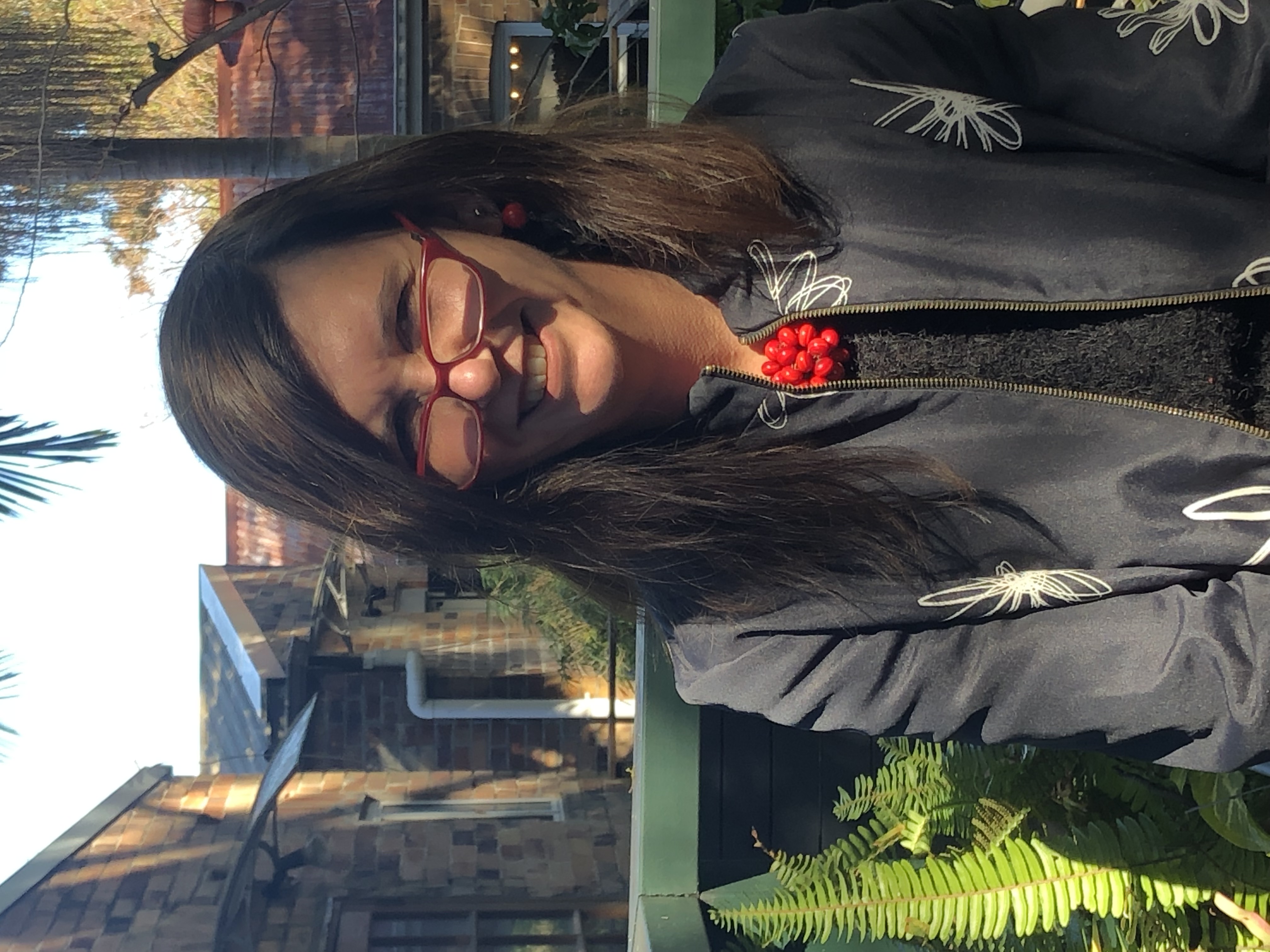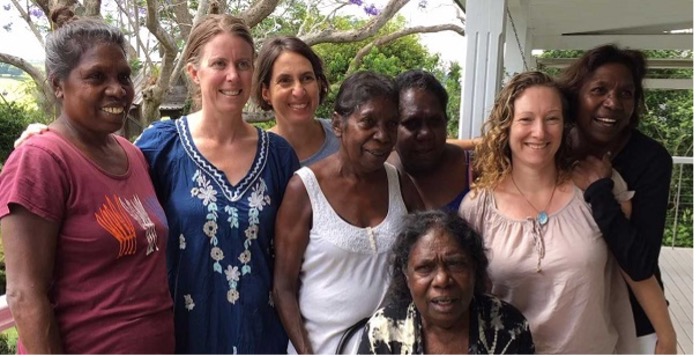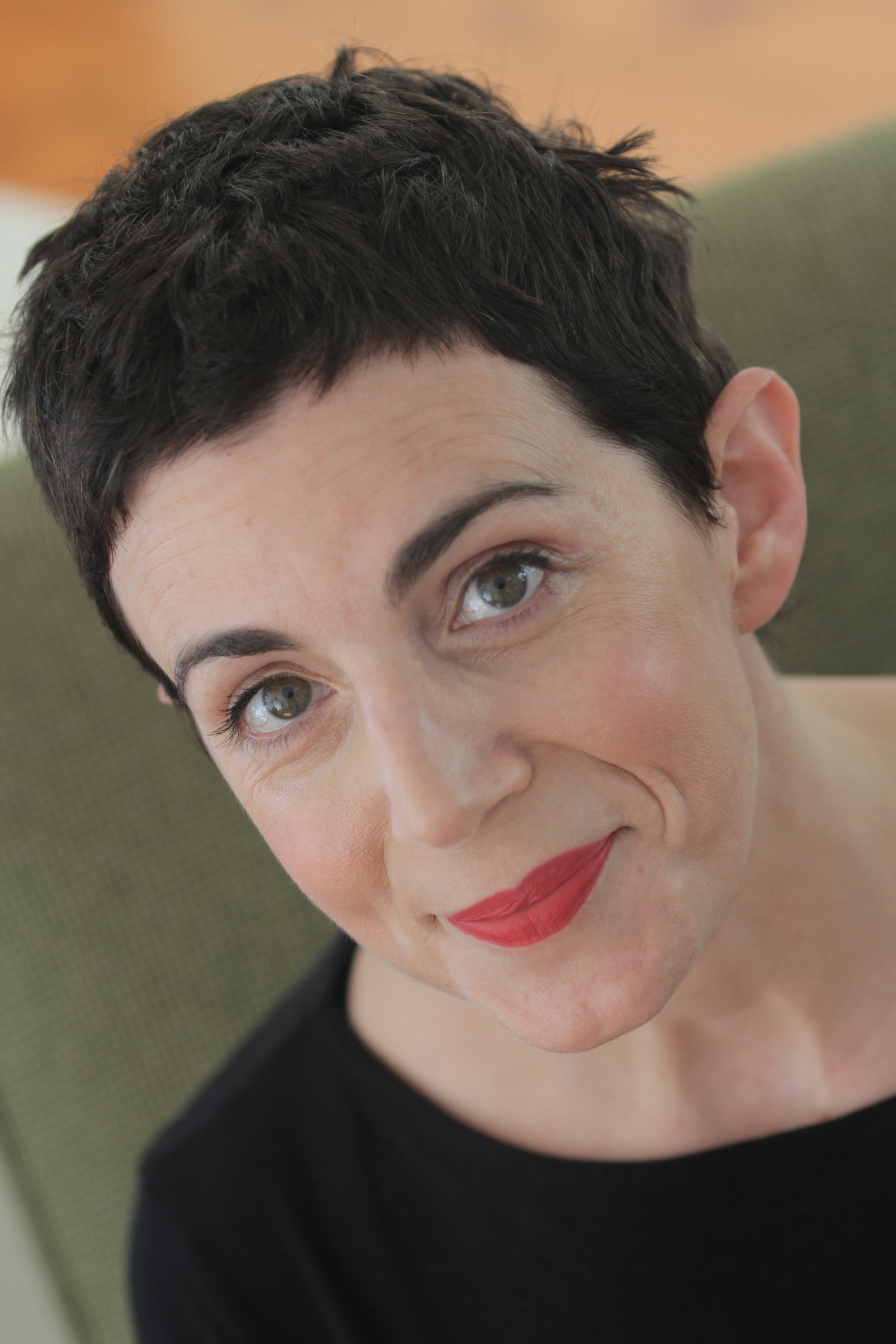Ever wondered what it takes to win a major grant?
In an incredible result for the Faculty of Arts, four of our researchers have been awarded 2021 Future Fellowships. While the national success rate for this scheme was 14.8%, the success rate for our Faculty was an impressive 50%. To celebrate this wonderful achievement, we asked our Future Fellowship awardees for their tips and key learnings when applying for grants, what helped them reach this success and what they hope to achieve with the grants.

Dr Jane Johnson, Department of Philosophy
Project: Rethinking animals in research:
Developing a novel ethical framework
Awarded: $726,320
"Believe in your research and stick with it, and take advantage of all the resources on offer."
What helped you get to this success in your career?
The help of human and nonhuman others, persistence and passion got me here. Friends, mentors and colleagues have given me great support and encouragement. Fellow academics have shared their experience and expertise, and have helped me believe in myself and my work in spite of some significant challenges. The issues at the heart of this grant are ones that I care deeply about and have done so for a long time. That passion has kept me motivated and doing the research, even when it was hard to find the time and when it wasn’t considered an appropriately philosophical topic.
What advice would you offer to ARC and other grant applicants?
Start writing and thinking about your grant well in advance of the deadline. Believe in your research and stick with it, and take advantage of all the resources on offer. Getting this kind of grant involves the efforts and commitment of many people across the University. In my case (in addition to my colleagues and mentors) I benefited from the support of CAVE, the Arts Research Office (current and past personnel) and the Library. Plus, Ross’ Budget Calculator is awesome!
Why is your research project so important?
We need to change how we do research with nonhuman animals. Ninety-five percent of the drugs that enter human clinical trials don’t make it onto pharmacy shelves, despite having shown promise in animal experiments. This is significant for us and for them. It means that limited funding for research may not be well spent, that the efforts of researchers and trial participants may be wasted, and that animals have been sacrificed for no good reason. The gap between animal trials and human responses also means that patients may not receive the best possible treatments, as some potentially valuable drugs will be discarded based on animal tests. This situation could and should be different.
What do you hope to achieve with this grant?
I want to contribute to positive change in animal research and to how we think about and treat animals more broadly. I want to use the time and intellectual space opened up by this grant to do the rigorous philosophical and empirical work that can scaffold transformation. I also see this as a huge opportunity for us to continue to build the community of scholars working on animal issues at Macquarie.

Associate Professor Sandie Suchet-Pearson,
School of Social Sciences
Project: Enabling Indigenous and Country-led
understandings of sovereignty
Awarded: $978,680
"Never give up. Never lose hope. Always keep going and draw on the support of the amazing people around you."
What helped you get to this success in your career?
The Future Fellow, like so much in academia, is framed around individual success. But for me, scholarship has always been about working collectively, and this collaborative approach is fundamental to my Future Fellow project. My research collaborators from Bawaka Country and Dharug Ngurra, especially Laklak, Ritjilili, Merrkiyawuy, Banbapuy, Djawundil, Uncle Lex and Djurumin Corina, and the powerful places themselves; have all been an integral part of the journey and nurtured our work together with such incredible generosity and care. My research has never been a lone venture or achievement and my academic colleagues, especially Kate, Sarah, Marnie, Lara, Richie, Mati and Laura have been part and parcel of every moment, every high and low of academic life-worlds. These people and places are mudgin, family, and together with my wonderful husband, kids and parents we have all worked together over many, many years to achieve this.
What advice would you offer to ARC and other grant applicants?
Never give up. Never lose hope. Always keep going and draw on the support of the amazing people around you. Take all the advice and diverse feedback you will get on board, and especially listen to the University research offices. A special shout out the Faculty of Arts Research Office who are simply incredible.
Why is your research project so important?
The research is important because it supports the ongoing and inspirational work of custodians in northern and eastern Australia. This work is directly contributing to the urgent process of healing Country, Country that has been so violently wounded by ongoing colonising processes. Working from my place, the project will collectively support the goals of the Bawaka and Yanama Budyari Gumada Collectives including sharing, as deemed appropriate by custodians, the ways in which these processes centre the active agencies of Country which are at their heart, enabling regenerative sovereignties - healing relationships between people and places.
What do you hope to achieve with this grant?
I hope to support Bawaka Country and Dharug Ngurra in the incredible work they are doing to care and heal Country, including human healing, which is part of Country. I hope we can appropriately share the learning that comes from this with the broader community and that this can challenge the colonising, neoliberal, extractivist thinking which dominates unjust social and environmental change today, and foreground and nurture obligations of responsibility, care and healing.
Dr Kate Rossmanith, Department of Media,
Communications, Creative Arts, Language and Literature
Project: Seeking ‘Closure’ in Unsolved Homicide Cases
Awarded: $927,774
"It helps to really love your project, to believe in the boldness and urgency of it...no-one says this explicitly, but your task is to make the ARC fall in love with your project."
What helped you get to this success in your career?
My research has always been very interdisciplinary. This has allowed for the development of novel approaches to pressing problems in the world. My background is in Performance Studies, a discipline born of a marriage between theatre and anthropology, and one interested in the ways in which we perform ourselves in everyday life. I also have a background in creative nonfiction writing. And then a decade ago I began studying criminal law. All this laid the grounding for my ethnographic research that examines affect, enactment, and language-forms in criminal justice processes.
Throughout my career I have been fortunate to receive excellent research mentoring and peer feedback on my work. I have also been a beneficiary of the exceptional research support offered by the team at the Faculty of Arts Research Office.
What advice would you offer to ARC and other grant applicants?
It helps to really love your project, to believe in the boldness and urgency of it. It’s the only chance you have of transferring passion onto the pages of the grant application: no-one says this explicitly, but your task is to make the ARC fall in love with your project. You want your application to be un-rejectable.
You need this conviction about your own work because ARC grant-writing is gruelling. I was awarded the Future Fellowship my second time around. My 2019 application was unsuccessful. Last year during the rewriting process I was stunned to find that, just as I’d spent many months on the first iteration of the application in 2019, I spent the same amount of time reworking it for the 2020 round. Throughout the writing process, I was fortunate to receive feedback from many experienced people, and I engaged with their feedback rigorously. Part of that feedback included concrete ways to narrate interdisciplinarity so that assessors from differing fields might all respond with enthusiasm.
Why is your research project so important?
There is a widely held view that the criminal justice system can help provide ‘closure’ for victims of crime and their loved ones. However, ‘closure’ as a concept is amorphously defined; there is no agreement about whether it exists, or, if it exists, how it can be achieved. My project examines how ‘closure’ functions as an emotion (and an emotional expectation) in the justice system and in people’s lives. This will be realised through an investigation into the ways in which bereaved families and police experience unsolved homicide. Despite the enormous public interest in unsolved homicide cases, very little research has been done on how they affect the people most impacted by them, nor how those people might be best assisted.
What do you hope to achieve with this grant?
I hope to develop creative research methods that can powerfully study the role of emotion in the criminal justice system. I hope to transform our understandings of ‘closure’, and to develop a language – new modes of expression – that meaningfully situates people’s fraught experiences of grief, confusion and feelings of non-resolution. I am working with the Homicide Victims’ Support Group, the police, and coroners, and will conduct fieldwork and interviews. An HDR study attached to the project will focus on the particular experiences of Indigenous families. I hope to translate new knowledge about the effects of dealing with unsolved homicide into better communication between (and improved support for) victims’ loved ones and police.

Associate Professor Kristian Ruming,
School of Social Sciences
Project: Universities as entrepreneurial urban actors
Awarded: $987,916
“It’s important that the application appeals to both experts in the field and to general readers, such as members of the College of Experts.”
What helped you get to this success in your career?
A clear long-term research strategy, that included collaborating with leaders in the field, securing research funding and publishing in high quality outlets.
What advice would you offer to ARC and other grant applicants?
It’s important that the application appeals to both experts in the field and to general readers, such as members of the College of Experts. It is also vital that your project align with your track record and past research.
Why is your research project so important?
The project explores the influence universities have on shaping Australian cities. This project is important because universities are significant landowners, are central to government planning strategies and, as a result, have the capacity shape the form of cities and how they function. The project also fills a gap by exploring how universities now act as land developers, revealing the extent, form, and value of land development activities undertaken by universities across Australia.
What do you hope to achieve with this grant?
The project findings will inform government planning policies to ensure that development activities undertaken by universities deliver positive benefits (such as infrastructure) to local communities and the wider city.
Congratulations to Jane, Sandie, Kate and Kristian, their departments and schools, and thanks to the colleagues in the faculty who supported them. If you are inspired by these researchers and are planning your own ARC application, they have generously made their successful Future Fellowship applicants available for Macquarie colleagues to read in the online successful grants library.
